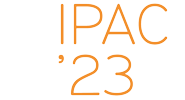Speaker
Description
The Facility for Rare Isotope Beams (FRIB), a major nuclear physics facility for research with fast, stopped, and reaccelerated rare isotope beams, started operation in May 2022. Since then, five nuclear physics experiments have been successfully accomplished. The experiments with rare isotope beams typically last within 1-2 weeks. Each experiment requires a different primary beam and its energy. It is critical to shortening the accelerator and fragment separator setup time to meet the requirements of the FRIB Users community. Currently, the primary focus in the linac is to reduce the accelerator setup time and ramp up beam power. Many physics applications, including Machine Learning, have been developed and used to set up the accelerator and beamlines. The simultaneous acceleration of multiple charge states of heavy ion beams is routinely used to minimize the beam power deposition on the charge selector slits after the stripper. The challenges in the fragment separator are related to the highly non-linear beam physics due to the large emittance and momentum spread of the isotope beams. Since the iron-dominated SC magnets operate near saturation, the optimization process includes field distributions at different excitation currents. This paper discusses the theoretical and experimental procedures to improve the linac and fragment separator performance.
Funding Agency
Work supported by the U.S. Department of Energy Office of Science under Cooperative Agreement DE-SC0000661
| I have read and accept the Privacy Policy Statement | Yes |
|---|

